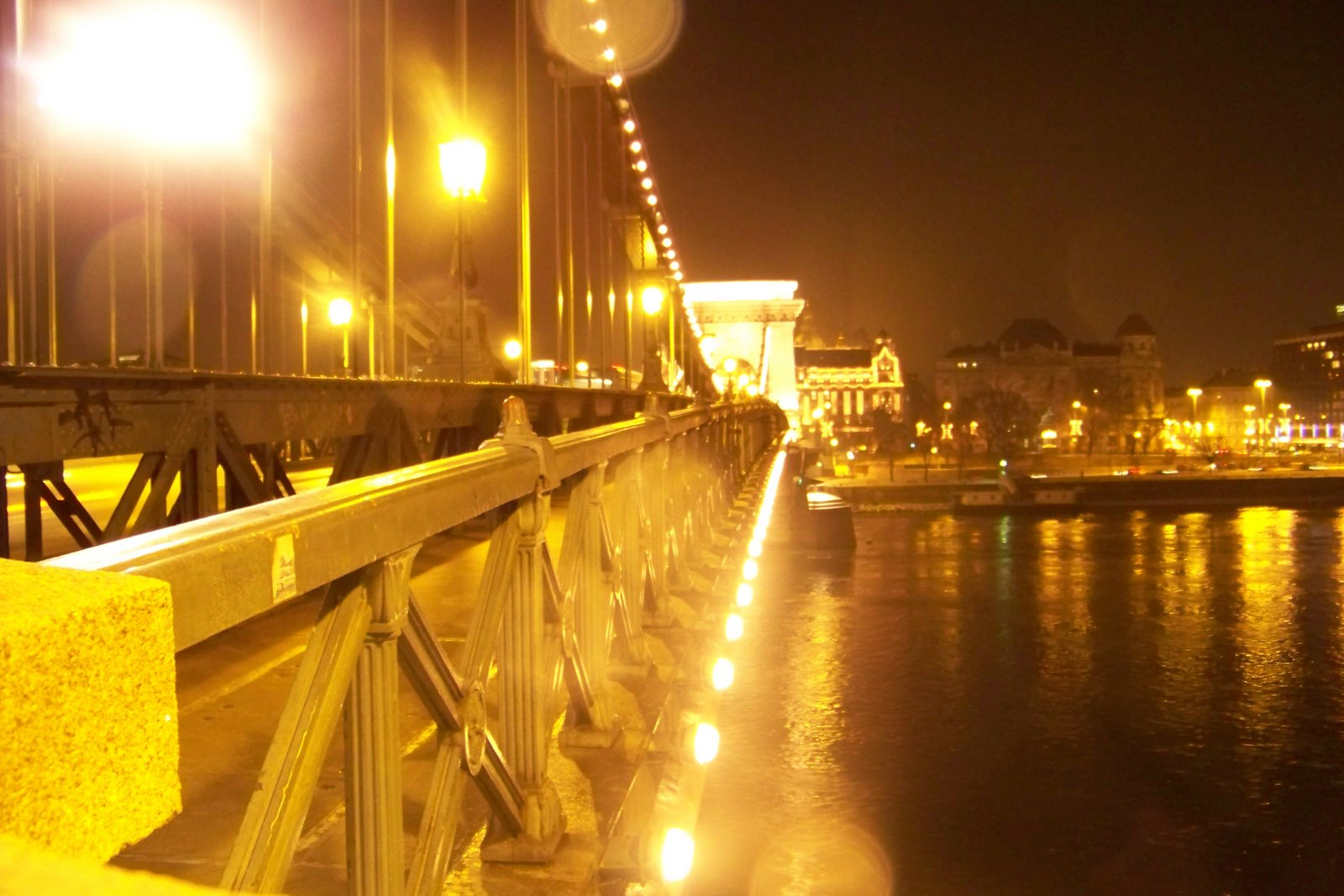 In a recent post I tried to describe how many serious designer-oriented architects long for almost unlimited political power in order to achieve their goals for a better world. It was not intended to be an accusation against people who openly choose dictatorship but instead was an observation that the kinds of policies and changes in the status quo that currently dominate professional discourse have the effect of favoring centralized political power and the abandonment of democratic participation. From the dream of building a brand-new carbon neutral city dotted with grand starchitect-designed monuments to the unceasing calls by many designers to regulate how people should live--from being eco-friendly to promoting a contrived 'sense of place' to zoning that favors mixed-use density--they all require more concentrated powers to a government entity while usurping the freedoms of citizens.
In a recent post I tried to describe how many serious designer-oriented architects long for almost unlimited political power in order to achieve their goals for a better world. It was not intended to be an accusation against people who openly choose dictatorship but instead was an observation that the kinds of policies and changes in the status quo that currently dominate professional discourse have the effect of favoring centralized political power and the abandonment of democratic participation. From the dream of building a brand-new carbon neutral city dotted with grand starchitect-designed monuments to the unceasing calls by many designers to regulate how people should live--from being eco-friendly to promoting a contrived 'sense of place' to zoning that favors mixed-use density--they all require more concentrated powers to a government entity while usurping the freedoms of citizens.The transfer of freedom from individuals to the state (or royal family) is really the transfer of who gets to make choices. It is from the ability to make choices that freedom becomes valuable, and one of the most fundamental choices is how one will get from one place to another. Mobility is crucial to exercising freedom and thus anything that promotes the free movement of individuals contributes the health of a free society. Walking is the most natural way we choose to move, and, unlike pack or herd animals, we humans cherish the ability to move at our own pace, in groups or by ourselves creating our own paths and being free to wander without fear. It is one of the reasons why the automobile has had as great a revolutionary effect on the pattern of human settlement as the beginning of agriculture. The movement of one's self, or 'auto-mobile' is as equally valid when a person walks with his legs as when that same person encloses himself in a steel cage with four wheels and an engine to drive. Scale and speed marks the difference between the two, and it also explains the fundamental change experienced by cities in the last century, evolving from mostly walkable cities to ones that have become mostly about driving from place to place. Given the mostly innate human desire to freely move, be it in a more natural mode such as walking or a more man-made mode such as driving, it follows then that car-based cities are a consistently logical development in the evolution of human habitation.
It is from this reasoning that I believe people will never willingly leave their cars en masse to walk exclusively. Despite all the added problems imposed by car use and the strains on the massive amount of required infrastructure, the enhancements cars have made average people's daily life have been dramatic as the fast-growing rate of car ownership throughout the world can attest. In addition to being able to travel greater distances in less time, the personal car, like walking, is infinitely multi-directional. Mass transit systems are by contrast linear in direction and often confine related human activity close to the line and more importantly along the nodes in where pedestrians stops (or stations) are located. They also limit an a person's perception of the city to sequence of nodes along the transit line in which the areas just beyond are almost insignificant. As an example, going out on drives through the Chicago affected my mental picture of the city in a vastly different way than what my car-less friends understood of their city. Whatever existed more than a quarter mile from the red line or blue line did not exist in their mental picture, and even they had to go to a location within such unfamiliar areas, they opted to become passengers in a taxi, which oftens prevented them from understanding where they were in relation to the train stop.
Driving allows the city to unfold itself as planar major nodes acting as coordinates, revealing the dynamic and complex relationship between remote urban concentrations. It greatly enlarges the geographic footprint that encompasses individual patterns of living and transforms locations once too far be of any use to people into a highly inter-connected node within an economically dynamic region. Whether the suburban sprawl that results is desireable should not be evaluated uniquely on an aesthetic or even spiritual basis but also on an understanding on how economic transactions take place over a geographic area. William T. Bogarts' recent book elucidates this latter aspect about sprawl, describing contemporary metropolitan areas as polycentric agglomerations consisting of a swath of competitive trading places. Critics against sprawl rely on a monocentric view of the city, which consists of the more traditional layout of a commercial downtown as the major employment center surrounded by residential zones just outside, often linked by major transit routes in a radial pattern. Bogart argues that the monocentric view no longer applies to the reality imposed by the automobile, and suggests that rather than to urge a strict return to the traditional monocentric city, we should try to better understand and improve the dynamic nature of our contemporary polycentric cities. It would allow us who hope to make positive changes to cities to do so with the goal of ensuring that metropolitan areas cultivate a wide diversity of experiences and lifestyles and to forge an environment for citizens to freely seek opportunities in infinite directions. There is no defined form or image of what such a city would look like, since it is important to acknowledge that cities transform over time and often are rarely the same place from one decade to the next.
Such an open-ended perspective allows for both new architectural and urban typologies to evolve and adapt, to solve certain conceptual and functional flaws and to generate new unintended problems. There is little doubt that automobile use has been the biggest instigator in the generation of new typologies, especially in regards to parking. The need to park our cars has transformed the way buildings relate to the street and in turn how they relate to people in terms of scale and speed. From retail storefronts lining sidewalks directly adjacent to the street to expansive gulfs of concrete and asphalt prefacing big
 boxes with eye-catching signage to catch the driver's eye while traveling at 60 miles per hour, new building types have been invented and new ways of approaching them have resulted. To many, auto-centric urban development has yielded dismal changes that have prompted a call for a return to pedestrian-centric development, with little interest to more skillfully integrate parking infrasture as part of a desired solution. They do not intend to improve the experience or the practicality of parking, they wish rather to eliminate it entirely. For them, the best cities are those that marginalize parking to the extremes, that promote lots of walking, and concentrate long-distance trips to linear mass transit systems.
boxes with eye-catching signage to catch the driver's eye while traveling at 60 miles per hour, new building types have been invented and new ways of approaching them have resulted. To many, auto-centric urban development has yielded dismal changes that have prompted a call for a return to pedestrian-centric development, with little interest to more skillfully integrate parking infrasture as part of a desired solution. They do not intend to improve the experience or the practicality of parking, they wish rather to eliminate it entirely. For them, the best cities are those that marginalize parking to the extremes, that promote lots of walking, and concentrate long-distance trips to linear mass transit systems.I came across an example of this attitude against car-centric infrastructure in an article that describes the evolution of the parking garage througout the years. Philip Kennicot of the Washington Post wrote a review of presentation given by garage building historian Shannon Sanders McDonald who has recently written a history of the recent building type and how it has changed with the city the around it. Kennicot describes some rather interesting tidbits about parking garage design and how perfecting ramp systems overwhelmed any other efforts to making the parking garage fit better with the existing urban fabric. MacDonald documents this history to encourage the further innovation and improvement to make them less jarring. For Kennicot such a pursuit is futile, and thus his article quickly becomes his private tirade against the irreperable damage cars have made to the urban experience in general.
Thanks to the new-found use of reinforced concrete after the turn of the twentieth century, ramps were perceived at the time as an innovative device in the design of vertical circulation and became instrumental in portraying a new architecture that unified motion, space and time. Le Corbusier and Frank Lloyd Wright were enchanted by them as ramps could provide creative solutions to age-old as well completely new design problems. For Kennicot, though, the parking ramp helped sever the connection of a person to the ground and to the building being entered. By measuring its merits based on sound principles of pedestrian-friendly buildings, the author unfairly, in my view, indicts a building intended for the efficient storage of cars. While parking garages could be designed to enhance the experience of the pedestrian a little bit, the car-based life requires that this building type may not be able to function well if it were it designed with the kind of standards that apply to the walkable lifestyle. With this reasoning, Kennicot argues that since traditional standards don't apply, parking garages are doomed to be ugly and harmful to cities and he thus entertains the thought of simply eliminating the car-based lifestyle for good, especially since he questions whether cars are even that "fundamental to the American right to mobility in an urbanized world." He goes on to argue for the end of the parking garage and forcing people to walk or used a shared mass transit:
...Or should we work toward their obsolescence and elimination (retained only for shared cars, buses, electric vehicles, etc.)? That is a trenchant, hard-nosed but ultimately more rational choice than the blithe acceptance of them as necessary evils that just need a little tweaking. Banishing the garage would force some social engineering on a population that desperately needs to wean itself from a planet-killing addiction to the automobile. When a neighborhood becomes a parking nightmare, one of two things must happen: People stop going there, or they get there on foot, bicycle, train or bus. Residents of crowded Georgetown might well consider both options entirely positive.
Denying people the freedom to drive where they would like to go on their own terms doesn't appear to me to be the rational choice. Such freedom has been the foundation of our contemporary economy and has empowered us in ways unimaginable to those living in urban areas before the car. Something had to replace the horse and cart of not too long ago, and linear mass transit systems were the premier way of getting around until a new kind of personal vehicle could operate faster with less restrictions.
Kennicot also reveals the latent tendency by those who admonish cars to abridge the precious freedoms afforded by the automobile. Practicing such freedom like that of self-movement by technological means is now supposedly harmful to the planet (even though modern cities have never been cleaner and would be more so once cars run on eletric or fue cells), and forcing society to give up driving so much will make life better for all us, even while each individual is disempowered. For all of its drawbacks, the car is a symbolic enabler of self-reliance that provides an independence from collective life. It ensures that a city's citizenry will balance the needs of the individual with the needs of the community, and that one can leave an undesirable situation if it arises to go elsewhere, an undefined other place beyond the reach of walkers and mass transit passengers. Like the above author, there are many urban thinkers who believe in a city devoid of the unlimited mobility afforded by cars, who think there is little real benefit to car use. Somehow it is better to rely on a public transit system run by unions that are prone to strike, that cannot guarantee adequate personal security, or runs on an impractical daily schedule wasting lots of one's time (yes, even more than the occasional traffic jam).
Like Shannon Sanders MacDonald, I accept having imperfect-looking parking garages in exchange for the level of mobility they offer to all city dwellers. I believe that each new building type presents an opportunity for refinement and innovation and can only enrich and diversify the urban experience at a point in the long history of any city. The parkage garage is a very recent and immature building type, and who is to know what it will become in the next century? Instead of trying to return the city to an assumed golden era in the past where it was almost exclusively pedestrian-centered, I favor cities to offer multiple experiences, whether from the point of view of the walking passerby to the person driving on a viaduct at 60 miles per hour. I also favor a diversity of environments and ambiance, from both a sense of proximity as well as remoteness. And I favor all modes of getting around in an urban area, providing as many options as possible regarding the kind of speed (legs, bicycle, car, train) and the level individual control one wishes (driver/passenger/promenading). A city should always serve its traditional role as a cauldron of opportunity, but it can only prosper for as long as it enables its citizen to exercise choice in where they live and how they move.
The zero-sum mantra influences much of the thinking when it comes to how a city should develop in the future. It provides a pretext for planners and city governments to aquire more control over the lives of citizens by championing the needs of the so-called "community" over the needs of individuals. Restrictive zoning policies and ordinances follow which champion the will of a the majority (or the local city power elite) and punishes the minority, who then move out of the city and leave behing a place a bit less diverse than it once was.
A city that encourages all forms of urestricted mobility is one where everthing seems to possible with something for everyone. It suggests solutions that are not confined to 'either/or' but instead to 'both/and'.



 culture), I would not be surprised at all if one-hit wonders are a by-product of this method more than anything else. Simply put, we're capable of producing fine art on our own, but inspiration that's lasting is hard to come by in secular circles. Beyond shock and anger, the staples of the modern artist, what else can the world give you?
culture), I would not be surprised at all if one-hit wonders are a by-product of this method more than anything else. Simply put, we're capable of producing fine art on our own, but inspiration that's lasting is hard to come by in secular circles. Beyond shock and anger, the staples of the modern artist, what else can the world give you?

